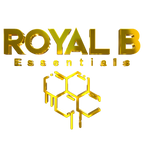Boosting Immunity Naturally: Foods and Habits That Strengthen Your Immune System
Introduction
In light of the COVID-19 pandemic, the significance of a robust immune system has come sharply into focus. While vaccines and medical interventions are crucial, enhancing the body’s natural defences through diet and lifestyle adjustments is also essential. This blog delves into the natural ways to bolster the immune system, highlighting the roles of specific nutrients including Royal Jelly and CoQ10, supported by scientific research.
The Role of Nutrition in Immune Health
The immune system, a complex network of cells and proteins, heavily relies on proper nutrition for optimal functioning.
Essential Nutrients and Supplements for Immune Support
- Vitamin C: A key immune booster, vitamin C aids in the production of white blood cells, found in abundance in citrus fruits, strawberries, and bell peppers. Carr and Maggini (2017) in "Nutrients" emphasised its role in immune functioning.
- Vitamin D: It modulates the immune response, with sources including sunlight, fatty fish, and fortified foods. Martineau et al. (2017) in "BMJ" found that vitamin D supplementation could reduce the risk of respiratory infections.
- Zinc: Crucial for immune cell development, zinc is found in nuts, seeds, and legumes. A study in the "Journal of Family Medicine and Primary Care" (2020) showed zinc’s effectiveness in reducing the severity and duration of viral infections.
Royal Jelly and CoQ10 in Immunity Enhancement
- Royal Jelly: This bee-derived substance is rich in proteins, vitamins, and minerals, possessing immunomodulatory effects, as noted by Majtan (2014) in "Molecules".
- Coenzyme Q10 (CoQ10): Acting as an antioxidant, CoQ10 supports immune function. Research by Folkers et al. (1993) in "Biochemical and Biophysical Research Communications" demonstrated its role in enhancing immune response.
Probiotics and Gut Health
A significant portion of the immune system resides in the gut. Probiotics, present in foods like yogurt, kefir, and fermented products, promote a healthy gut microbiome, thus supporting the immune system (Hill et al., 2014 in "Nature Reviews Gastroenterology & Hepatology").
Exercise and Immune Function
Regular physical activity can boost the immune system. Moderate exercise mobilises immune cells, aiding the body in detecting and fighting pathogens. Simpson et al. (2020) in "Exercise Immunology Review" illustrate how regular exercise reduces inflammation and improves immune regulation.
Sleep’s Role in Immune Efficacy
Adequate sleep is vital for immune health. Insufficient sleep can impair the functioning of immune cells. Research by Besedovsky et al. (2019) in "Physiological Reviews" showed that proper sleep enhances immune defence.
Stress Management for Immune Support
Chronic stress can weaken the immune system by elevating cortisol levels. Techniques like mindfulness, yoga, and meditation can help manage stress, thereby bolstering immune health (Cohen et al., 2012 in "Psychological Bulletin").
Conclusion
Strengthening the immune system naturally involves a blend of good nutrition, regular exercise, sufficient sleep, and stress management. Incorporating immune-enhancing nutrients such as Royal Jelly and CoQ10, alongside vitamins, minerals, and probiotics, can significantly bolster the body’s defences. Embracing these lifestyle changes is crucial for maintaining health and well-being, especially in the current pandemic context.
References
- Carr, A. C., & Maggini, S. (2017). Vitamin C and Immune Function. Nutrients, 9(11), 1211.
- Martineau, A. R., et al. (2017). Vitamin D supplementation to prevent acute respiratory tract infections: systematic review and meta-analysis of individual participant data. BMJ, 356, i6583.
- Majtan, J. (2014). Royal Jelly: An ancient remedy with remarkable antibacterial properties. Molecules, 19(11), 18883-18893.
- Folkers, K., et al. (1993). Increase in levels of IgG in serum of patients treated with coenzyme Q10. Biochemical and Biophysical Research Communications, 193(1), 88-92.
- Hill, C., et al. (2014). Expert consensus document. The International Scientific Association for Probiotics and Prebiotics consensus statement on the scope and appropriate use of the term probiotic. Nature Reviews Gastroenterology & Hepatology, 11(8), 506-514.
- Simpson, R. J., et al. (2020). Exercise, Immunity, and the COVID-19 Pandemic. Exercise Immunology Review, 26, 8-22.
- Besedovsky, L., Lange, T., & Haack, M. (2019). The Sleep-Immune Crosstalk in Health and Disease. Physiological Reviews, 99(3), 1325-1380.
- Cohen, S., et al. (2012). Chronic stress, glucocorticoid receptor resistance, inflammation, and disease risk. Psychological Bulletin, 138(4), 489-530.
